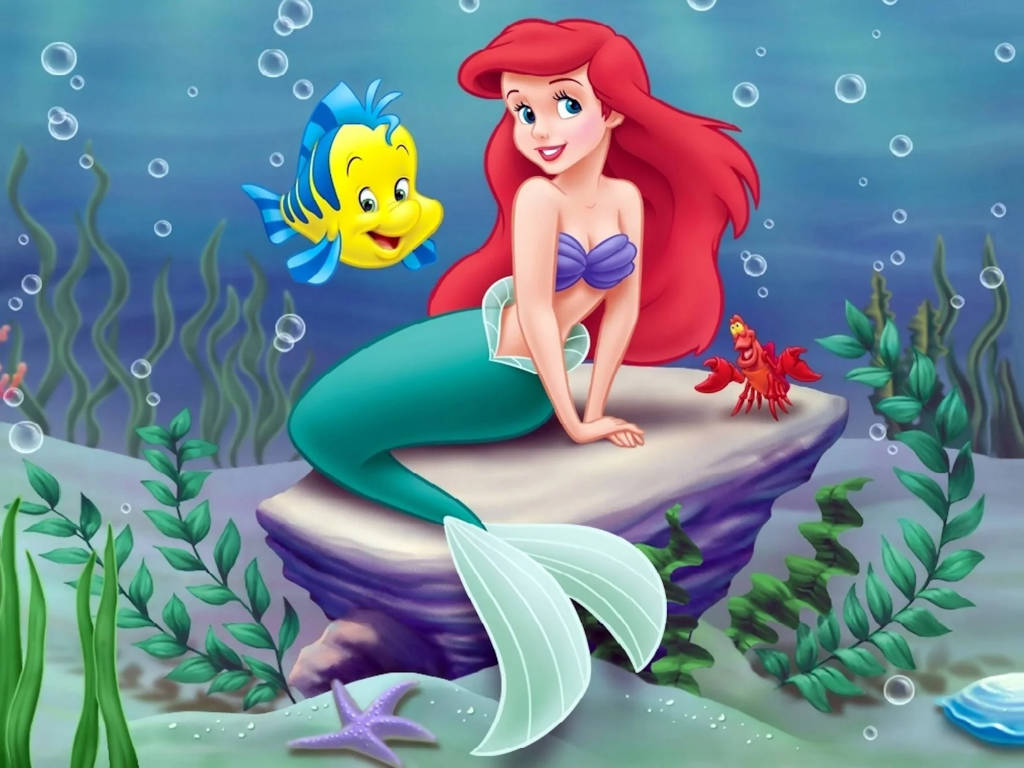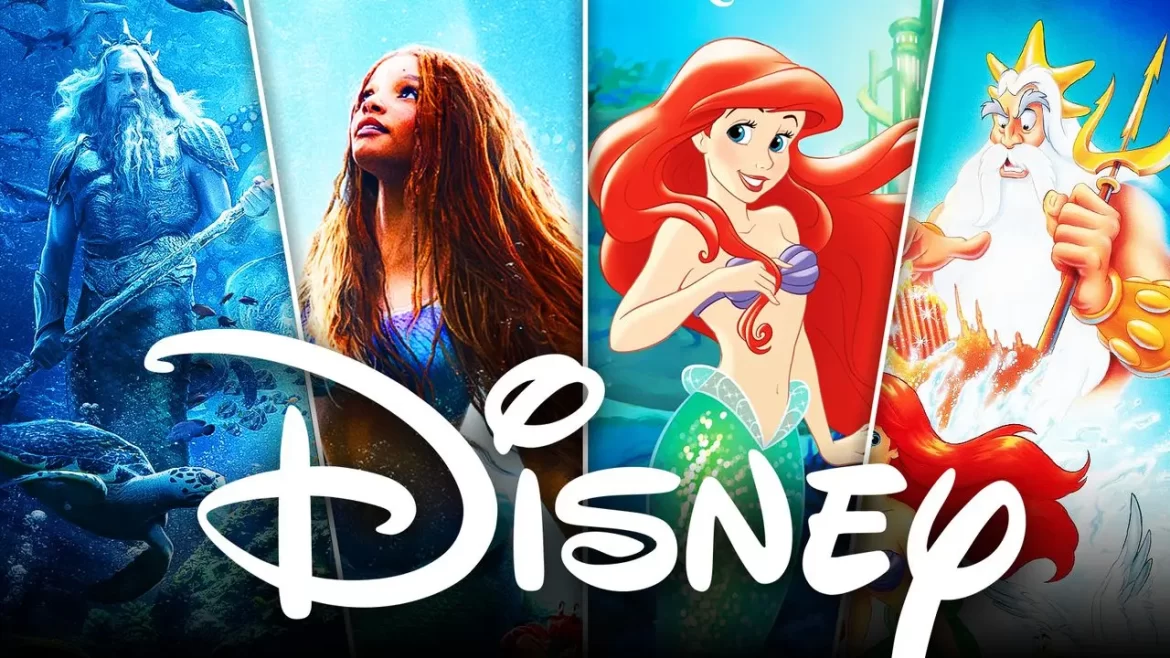小美人魚這部迪士尼的經典動畫在1989年首次問世,便成為了經典之作。2023年推出的真人版《小美人魚》將這個經典故事注入了全新的生命!從主角 Ariel 的人格特質到劇情發展,這部真人版在維持原版精神的同時,同時也不遺餘力地嘗試創新,使Ariel 的旅程變得更豐富,也更符合當今的價值觀。讓我們一起探索這部真人版《小美人魚》相較於原版的五大不同之處吧!
更有自主權的Ariel
Ariel,即我們熟悉的小美人魚(給還沒有看過電影的朋友們!)。她是海王 Triton 的七個女兒之一,對海洋以外的世界充滿了好奇心。Ariel 不只擁有紅色長髮和明亮的眼睛,更有一顆勇於探索未知世界的心。她雖居於海底,卻對陸地的一切充滿了無窮的嚮往。在原版動畫裡,她甚至為了愛情與對陸地生活的嚮往,與海巫 Ursula 作出了慘痛的交易,以聲音換取人類的形態並嘗試去追求自己的夢想。
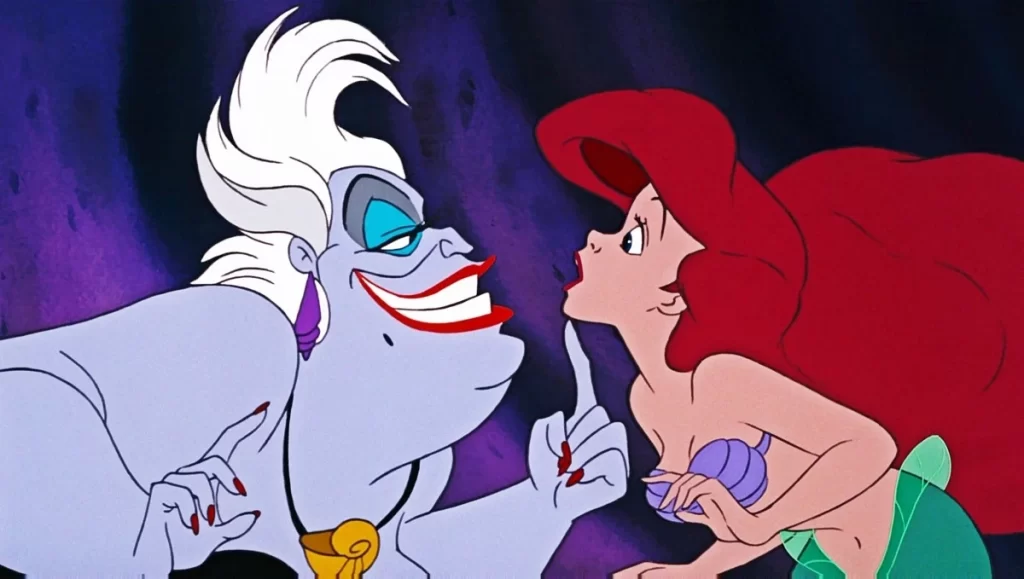
在新真人版中,Ariel 的形象有了一些變化。這次的 Ariel 不再是被動等待故事發生的角色,她變得更主動、更果斷。以往是 Eric 王子駕駛船只擊敗 Ursula,現在變成由 Ariel 自己親手結束這場戰鬥。她的形象更為堅強獨立,不再完全依賴於愛情,而是在追求自由與探索的過程中,找尋自我價值與定位。此外,她對於外界的渴望也更加複雜和豐富,不再僅僅是對 Eric 王子的愛慕,更包括想要脫離父親的統治,探索更大的世界。
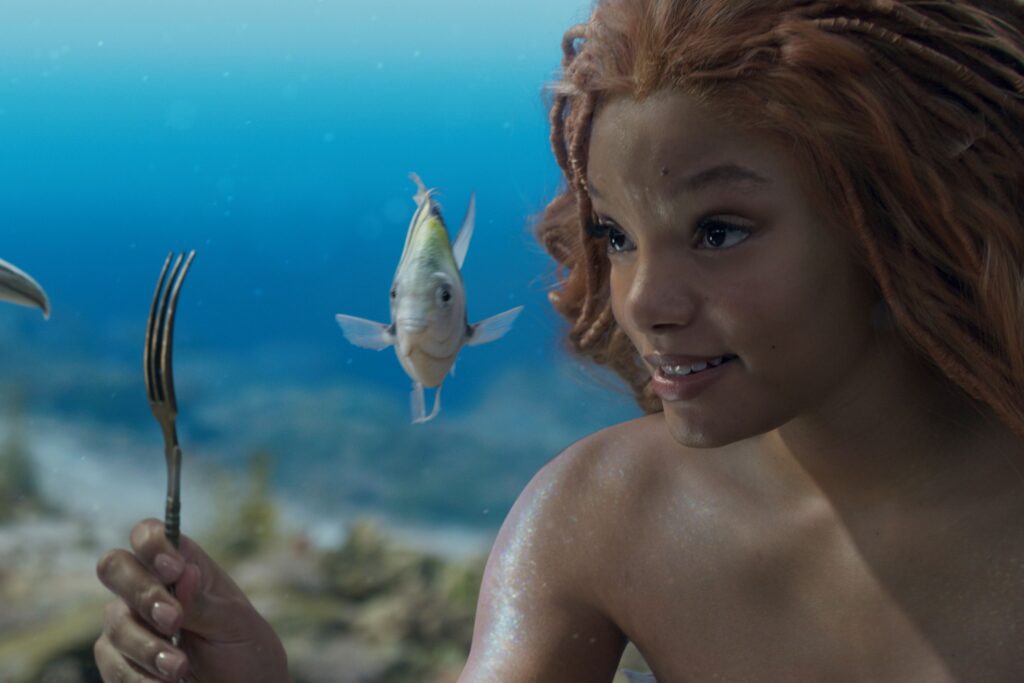
這兩個版本的 Ariel 在許多方面都有明顯的差異,新版本的 Ariel 更為現代化,符合現代觀眾的期待,她更勇於挑戰自己,掌控自己的命運,更具有女性獨立的精神!!
不再圍繞著婚姻
原版的《小美人魚》大部分圍繞著婚姻展開 – Eric 王子與 Ariel 會結婚嗎?或是他會娶 Ursula 的人類分身 Vanessa 嗎?在最後有很大一部分的劇情都是在船上進行,然後以一連串的滑稽事件阻止了婚禮的舉行。
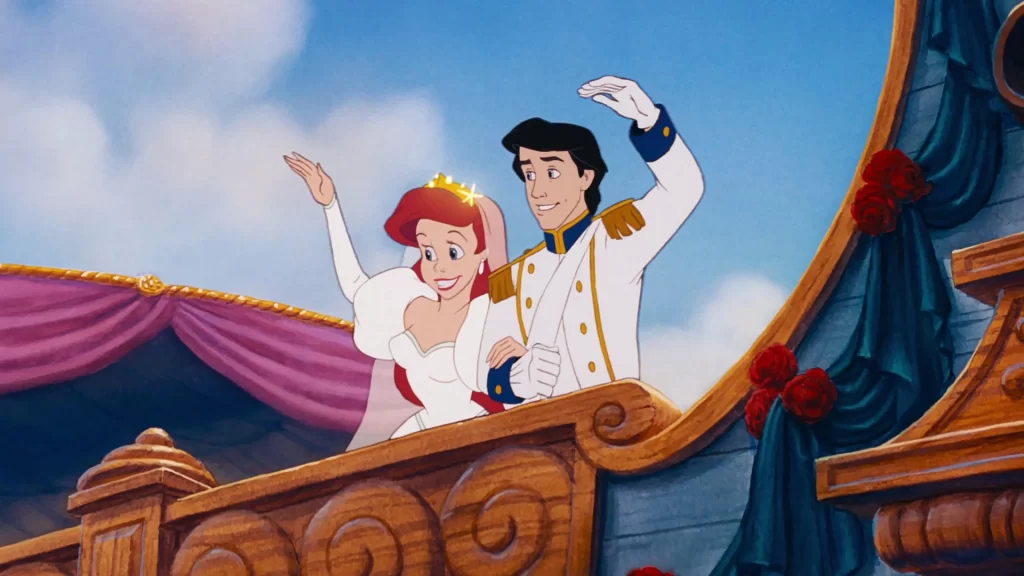
然而,在新版的《小美人魚》裡,婚姻這個主題基本上已經被擱置。雖然有謠傳 Eric 王子和 Vanessa 將訂婚,但實際上沒有人結婚,Ariel 和 Eric 王子在結局也並未舉辦婚禮。
觀眾可能會想念原來電影高潮的那種無法控制的混亂,當所有的海洋生物共同阻止婚禮的時刻。不過,生活不是全部都關於婚姻的,對吧?這種變化使得故事更貼近現代社會的觀點,認為兩性關係可以有更多的可能,並不需要以婚姻作為唯一的結局。這種變化也強調了 Ariel 的自主性和獨立性,她並不需要通過婚姻來完成自己,而是可以通過自己的選擇和行動來塑造自己的命運,使人們重新思考婚姻在人生中的角色和重要性。
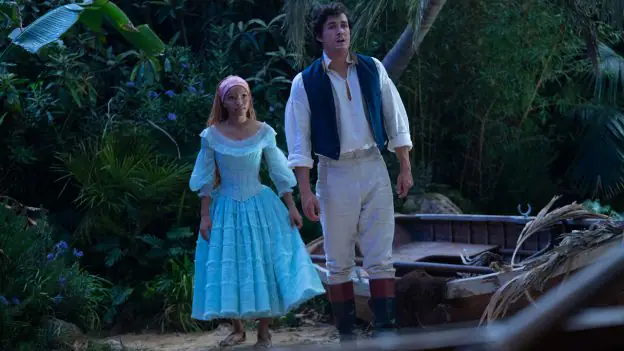
更多元化的人魚姐妹
在原版的《小美人魚》中,Ariel 有六位姊妹,名字分別為 Aquata、Andrina、Arista、Attina、Adella、和 Alana,她們與 Ariel 一起生活在海底王國 Atlantica 中。在故事中,她們的存在雖然並未扮演主要的角色,但透過歌曲 “Daughters of Triton” 的介紹,使觀眾對她們有所了解。
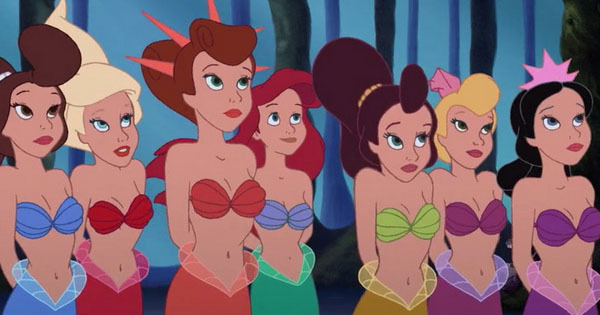
然而在新版的《小美人魚》中,Ariel 的姊妹們的名字從 Aquata、Andrina、Arista、Attina、Adella、和 Alana 改變為 Tamika、Perla、Caspia、Indira、Mala、和 Karina,並且姊妹們不再居住在海底王國 Atlantica。相反的,每位姊妹都在七海之一中擁有自己的領域,並且回到家中進行珊瑚月的慶祝。
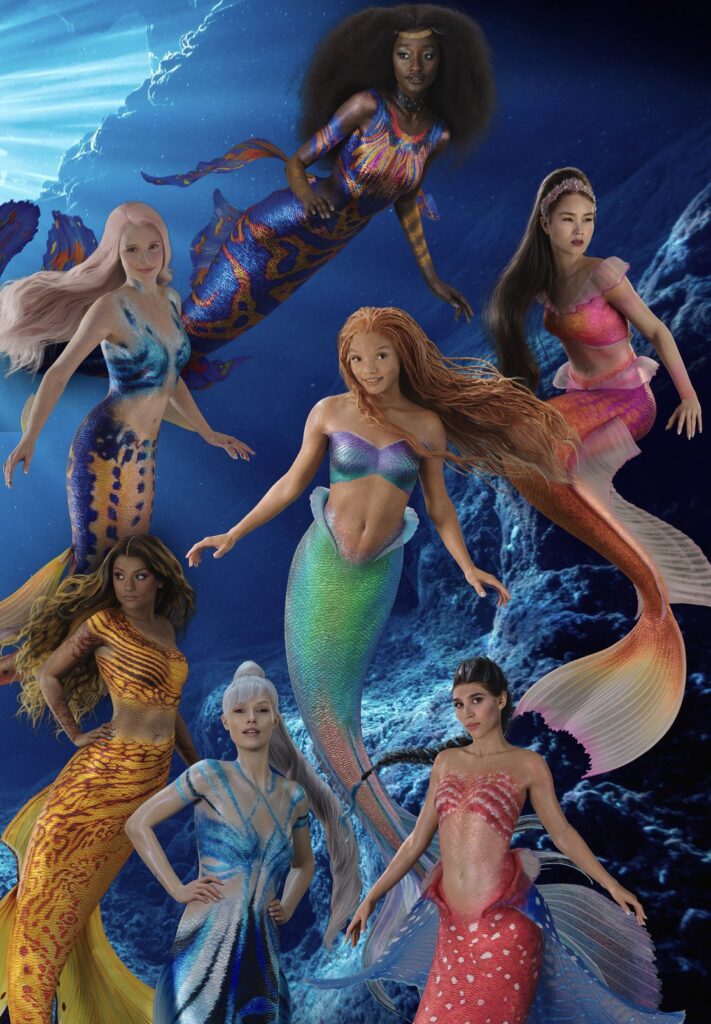
每一位姊妹都具有不同的國籍或種族背景,強調了人魚可以來自任何地方,可以是任何人的模樣。為此,原本用來介紹海王的女兒們的歌曲 “Daughters of Triton” 被從電影中移除。另外,新版的故事中更加入了一個陰鬱的元素,那就是海王Triton透露他們的母親被人類所殺,增加了故事的黑暗氣氛。
更多王子 Eric 的描繪
在原版的《小美人魚》中,Prince Eric 這個角色的背景故事相對簡單。他在海邊發現了被擱淺的 Ariel,然後他們就相愛了,他的廚師還試圖殺死 Sebastian。但在新版的真人電影中,導演為 Eric 和他的王國賦予了更為豐富的背景故事。
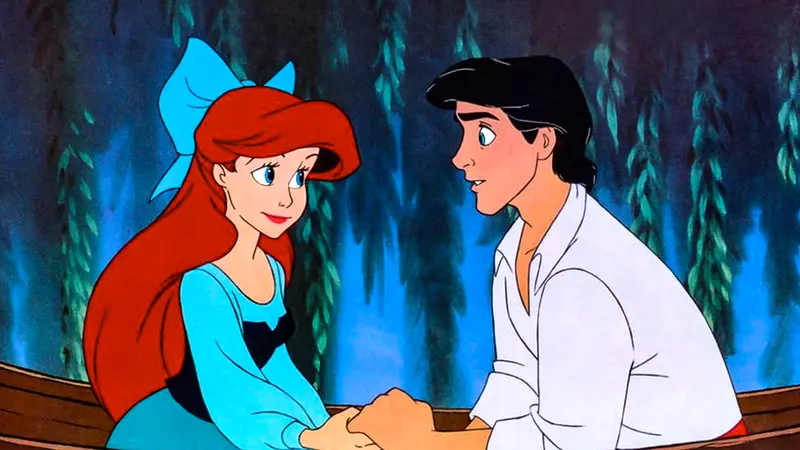
在新版的故事中,Eric 是一位由女王(由 Noma Dumezweni 飾演)收養的王子,並正在努力為擴大他的王國範疇做出貢獻。他的努力並非體現在殖民地擴張的方面,而是在於開放邊境,讓新的思想與觀點能夠進入他的國家。他在電影中還有一首獨唱的歌曲,而他的城堡也充分展現了他的國家帶有地中海風格的特色。
新增三首音樂
原版《小美人魚》的音樂曲目是迪士尼經典中不可或缺的一部分,如 “Part of Your World”、”Under the Sea”、”Kiss the Girl” 等。這些歌曲以其動聽的旋律和深入人心的歌詞,成功捕捉了Ariel 的夢想、希望,以及對未知世界的好奇和渴望。
然而在新版的《小美人魚》中,除了原有的經典歌曲,還加入了三首全新的曲目。
第一首是 Eric 主唱的 “Wild Uncharted Waters”,這首歌伴隨著 Eric 更豐富的故事背景和更多的鏡頭而製作,但它並不是一首如期望中的高昂、嚮往的歌曲。
第二首是 Ariel 的 “For the First Time”,這首歌巧妙地解決了原版中 Ariel 失去聲音後再也無法唱歌的問題,透過一個獨特的方式——讓 Ariel 在體驗人類世界的各種新奇時,腦海中想像自己在唱歌。
最後一首歌 “The Scuttlebutt”,由 Scuttle 和 Sebastian 共同演唱,帶有 Lin-Manuel Miranda 獨特的說唱風格,也用作為故事的一部分。
結語
這些改變不僅為我們提供了全新的觀看角度,也讓這個深愛的故事更貼近現代的價值觀與社會觀點。有些改變或許讓一些原版的粉絲感到難以接受,但這也是故事本身與時俱進的一部分。《小美人魚》真人版的出現, 讓我們有機會重新發現並深入體驗這個我們深愛的故事,也讓我們看到舊的故事如何在新的語境中散發出全新的光彩。
想看其他的電影?歡迎到RosyArts電影分頁:連結
小美人魚官方預告片:連結
